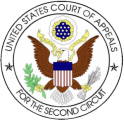2nd Circuit: It’s Illegal to Import and Sell Foreign Works Without Permission
Remember the Costco v. Omega fiasco from last winter, where the U.S. Supreme Court, with Justice Kagan recusing herself, went 4-4 regarding the issue of whether the U.S. Copyright Act applied extra-territorially? In that case, the Supreme Court was reviewing a 9th Circuit decision that upheld Omega’s right to prevent Costco from selling legitimate Omega watches it had purchased abroad from a gray-market importer and selling them for much lower cost in the U.S.
Well, yesterday, the 2nd Circuit agreed with the 9th Circuit when it decided 2-1 in John Wiley & Sons Inc. v. Supap Kirtsaeng that it is illegal for anyone to import and sell foreign-made copyright works without the copyright owner’s consent.
Why is this important? Remember Cornell University’s Peter Hirtle, and his argument on what the Costco decision, if upheld, would have for museum exhibitions and the public display of art works? (Note here that Hirtle focuses on the public display of artworks, not just the resale right.) Well, about a year ago I applied Hirtle’s reading to visual artworks. Here’s the reminder:
[I]f the Supreme Court upholds the Ninth Circuit’s decision, it would mean that any museum that wanted to display a foreign work still protected by copyright abroad would have to either get permission from the foreign copyright owner or make a fair use argument, unless they had obtained the copyright with the artwork or obtained permission to display the art work directly from the author and/or copyright owner. I wonder why no one else aside from Hirtle has picked up on this?
With the 2nd and 9th Circuit’s agreeing, and without a circuit split, it seems this reading is the guiding light. Hirtle’s argument may be accessed here.
Thomson Reuters has more here.

Shawn Fahrer:
August 17th, 2011 at 12:15 am
All it does is SCREW students who are being forced to pay ARTIFICIALLY HIGH PRICES for “American versions” of textbooks (which are NOT, despite Wiley’s arguments to the contrary, “significantly different” than foreign editions of textbooks). The Court probably NEVER COMPARED a foreign and domestic version of ANY WILEY TEXTBOOK to see for themselves that Wiley is lying!
This alone would, I believe, change the opinion of the court– since the real problem here isn’t copyright infringement– it is PRICE FIXING!